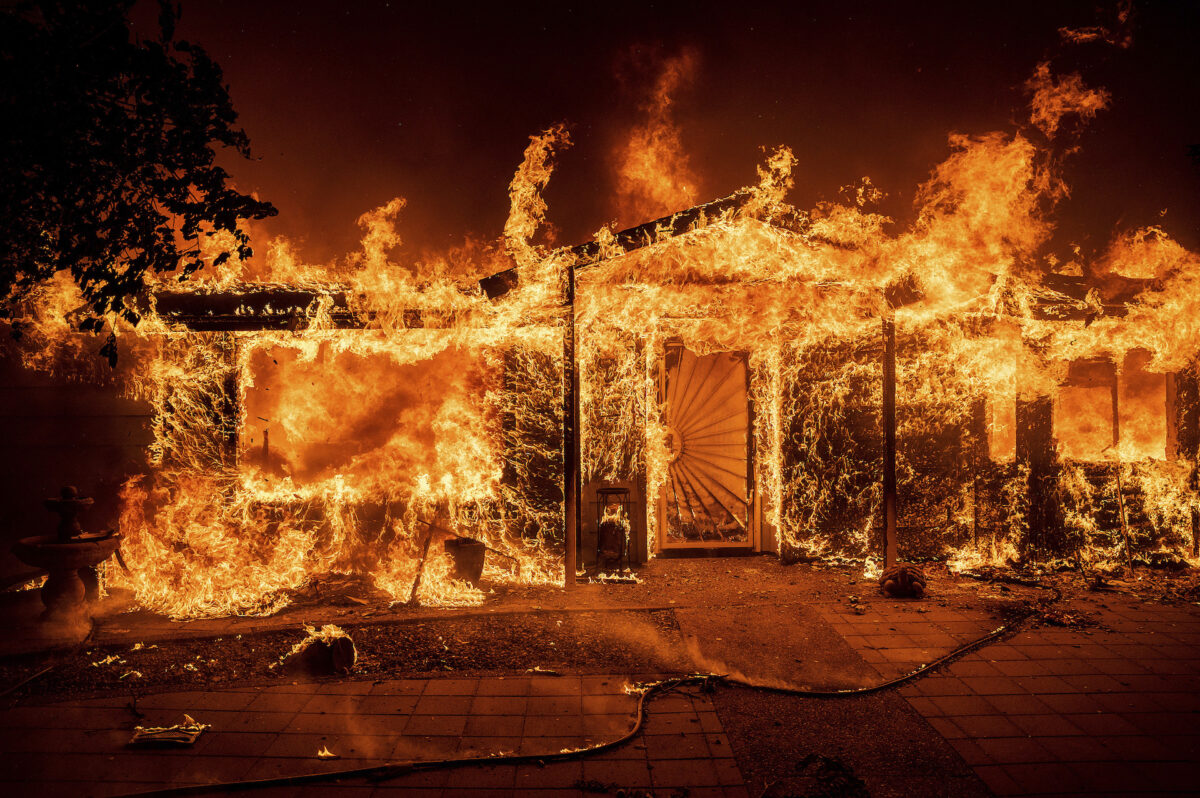
Insurance company State Farm is halting new property insurance policies in the state of California as the firm battles inflationary pressures and increasing exposure to wildfire risks.
In California, State Farm will “cease accepting new applications including all business and personal lines property and casualty insurance, effective May 27, 2023,” the firm said in a May 26 statement. The company “made this decision due to historic increases in construction costs outpacing inflation, rapidly growing catastrophe exposure, and a challenging reinsurance market.” State Farm agents will continue to serve existing customers for these insurance products. The decision also does not impact personal auto insurance.
State Farm isn’t the first insurer to cut back on their homeowners business in California. Last year, the American International Group notified its high-net-worth clients that the company would stop renewing their policies.
Several insurers are scaling down their insurance offerings to homeowners due to worries about exposure to wildfires. Most of these cutbacks have taken place in regions of the state considered to be prone to the danger.
Properties that do not have the necessary fire-resilience features, like fire-resistant building techniques and the use of fire-resistant construction materials, are also said to be facing cutbacks from insurance firms.
In its statement, State Farm said that they “take seriously our responsibility to manage risk. We recognize the Governor’s administration, legislators, and the California Department of Insurance (CDI) for their wildfire loss mitigation efforts. We pledge to work constructively with the CDI and policymakers to help build market capacity in California.”
“However, It’s necessary to take these actions now to improve the company’s financial strength. We will continue to evaluate our approach based on changing market conditions.”
Inflation and Insurance
Following the State Farm announcement, the American Property Casualty Insurance Association (APCIA), a trade association for home, auto, and business insurers, blamed inflation for making “every aspect involved in an insurance claim” costlier.
“It is costing more and taking longer to rebuild homes after a covered loss,” said Mark Sektnan, APCIA vice president for state government relations.
“The California Department of Insurance (CDI) is working with insurers towards achieving adequate rates and making other market improvements because the admitted market continues to struggle with inadequate rates that don’t cover the increased risks caused by climate change and the growing number of communities in wildfire-prone areas.”
Insurers in California continue to operate under “outdated” rules from 1988 that prevent them from adapting to present-day increased risks. It is necessary to make sure that insurers can “charge rates that reflect the increasing risk of loss,” Sektnan said.
Rising Costs
According to a 2022 report released by Policygenius, home insurance rates in California jumped by 10 percent between May 2021 and May 2022. Many insurers are refusing to renew policies due to the devastating wildfires in the state, it pointed out.
“There’s inflation that’s taken place, so the cost to rebuild a home costs quite a bit more than it used to,” said Janet Ruiz, Director of Strategic Communications at the Insurance Information Institute.
“There’s also a shortage of contractors. And we’re seeing hotter, drier weather—and more wind—which leads to more wildfires. So, all these things are coming into play at the same time.”
California has some of the most expensive homes in the United States. According to data from real estate brokerage Redfin, the median sale price of homes in California was $765,900 in April.
Even though this is down by 8.6 percent compared to April 2022, it is still 33 percent up compared to the home price of $574,200 in April 2020, the initial period of the COVID-19 pandemic. In April 2023, the median sales price of a home in the United States overall was $407,857.



















































